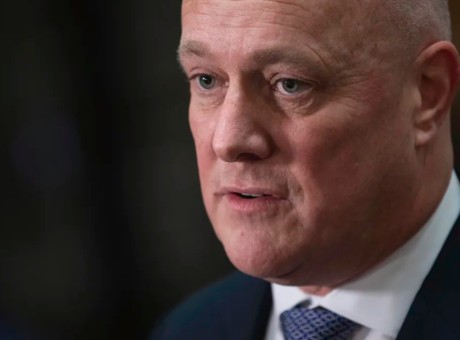No phones at school - 'It'll force us to talk'

While the government's phone ban doesn't officially come into force until next term, local high schools, and students, are already getting their heads around the new rules.
In Wānaka, Mount Aspiring College has started the year with a 'no-phones' policy, whilst Queenstown's Wakatipu High School is still working out kinks in its plan.
School principal Oded Nathan is still figuring out some of the practicalities of following through on Wellington's directive.
"We are still working through how we'll manage the no cellphones during break times, as collecting 1,450 phones at the start of the day and returning them at the end of the day is not feasible."
He says exactly how the school will manage this isn't expected to be finalised until the end of the first term.
A review of the school's phones policy was undertaken last year in consultation with students and parents, and then few changes were made to existing rules, which ultimately require phones to be on silent and in school bags during class time.
There is an exception, though: Mr Nathan says teachers can give the ok to students to use their phones to help with learning in the classroom, and that is in line with the government's latest policy.
The banning of mobile phones in schools was a campaign promise from the National Party, and it is something that has already happened over the ditch, with the New South Wales no-phone policy coming into schools in October 2023.
Speaking with students in QUeenstown after school today, attitudes were mixed.
One year 11 student told Crux it'll be good during homeroom because "it'll force us to talk".
Usually during this morning time for notices and attendance students are on their phones, she says, predominately using TikTok or Snapchat.
Her mate, also in year 11, reckons while the ban is ultimately "good", it is also "annoying".
While the pair think they'll be able to manage without their phones, another student thought otherwise, expressing to Crux "mixed feelings" about the government's move.

Crux spoke to Wakatipu High School students after the bell rang today.
"In class, phones can be distracting, but we should be allowed to use them at break time as something to do," he says.
He agrees it's social media that often lures students to their phones during school hours, with Instagram and Snapchat both popular.
A pair of year nine students told Crux that while they mostly agree with the government's direction, and think it's "a good idea" to keep mobile phones out of schools, they worry it may be tricky to organise and communicate after-school arrangements.
They say plenty of their peers are juggling part-time work and extracurricular activities with a school day.
Four other grade 11 students were not big fans of the ban.
They say it is already a "big deal" if you're caught with your phone in class, and consequences can include a meeting with a dean and a phone put in an envelope and locked away at the office.
"We bought this (phone) with our own money; I don't want a random stranger taking it. It's invasive of our private property," one of these year 11 students told Crux.
They say they use their phones "to find each other" during break times, otherwise it can be difficult to know where your friends are.
In their experience, phones are also used at school for paying for food in the canteen, as well as in classrooms for their calculator functions, taking photos of notes on the board, and accessing information online, including on sites that are blocked on the school wifi and in the science building, which is a wifi dead-zone.
Over at Mount Aspiring College, principal Nicola Jacobsen says the majority of parents and caregivers support the school's existing ban on mobile phones, which was decided on after receiving feedback during a community consultation undertaken last year.
The ban includes the problem lunch-time period too.
According to the policy students seen with phones during the school day will have them confiscated, and they cannot ask for them back or have another teacher retrieve them for them.
There is a school phone at the office available for use, and this allows for communication between students and their parents or caregivers.
Arrangements with a dean can allow for students who need access to their phones for medical reasons, such as diabetes monitoring.
Ms Jacobsen says students and parents alike recognise phones can be a "distraction" at school, and they can contribute to the risk of "digital harm in the playground".
"Our teachers also support the ban as the removal of phones helps students engage better with their learning."
MAC’s ban on mobile phones started at the beginning of this school year.


























